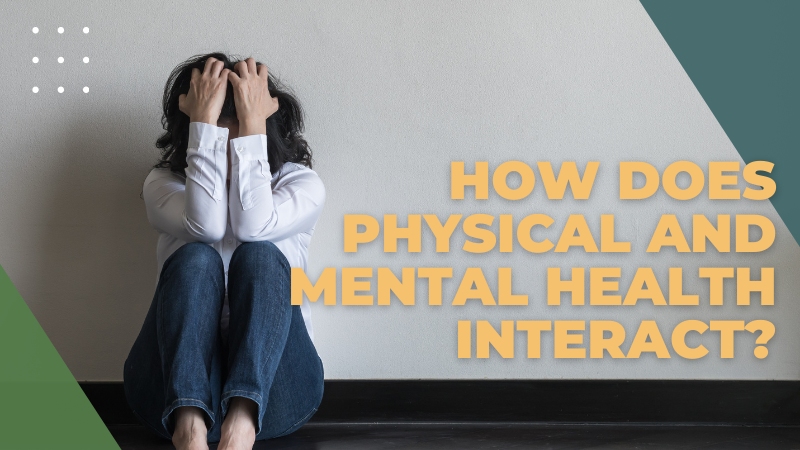Although the mind and body are frequently considered independent entities, mental and physical health are in fact inextricably linked. Good mental health can improve your physical health. In turn, poor mental health can harm your physical health.
The Impact of Mental Health on Physical Health:
Your mental health significantly influences your overall well-being. A positive mental state can help you stay healthy and avoid significant health issues. A study discovered that high psychological well-being can lower the risk of heart attacks and strokes.
On the other hand, poor mental health can lead to poor physical health and dangerous habits.
Chronic disease:
Depression has been connected to numerous chronic conditions. Diabetes, asthma, cancer, cardiovascular disease, and arthritis are some of the disorders mentioned.
Schizophrenia has also been related to an increased risk of cardiovascular and respiratory disorders.
Mental health issues might also make managing a chronic illness more challenging. People suffering from depression or other mental health issues have an increased risk of dying from cancer and heart disease.
Sleep issues:
People with mental health issues are more likely to experience sleep disorders such as insomnia or sleep apnea. Insomnia can make it difficult to fall and remain asleep. Sleep apnea causes breathing issues, which can lead to frequent awakenings.
Approximately 50-80% of individuals with mental health disorders experience difficulty sleeping. Only 10% to 18% of the general population has sleep issues.
While melancholy, anxiety, or bipolar illness can cause sleep problems, they can also exacerbate pre-existing mental health conditions.
Smoking:
People with mental health issues are more prone to smoke than those without mental health issues. People with mental health disorders are more prone to smoke more cigarettes than other smokers.
People who are depressed have reduced levels of the neurotransmitter dopamine. Dopamine impacts happy feelings in the brain. Cigarettes contain nicotine, which stimulates the creation of the neurotransmitter dopamine, hence smoking may be used to ease depressive symptoms.
However, because nicotine only provides short relief, you may feel compelled to smoke again, perhaps leading to addiction.
Access to healthcare:
People with mental illnesses are less likely to have access to adequate medical care.
People with mental health disorders may find it more challenging to maintain their physical health. When you have a mental health illness, it might be difficult to get help, take your medications on time, and get adequate exercise.
Conditions of the Body That May Impact Mental Health:
Your physical well-being influences your mental health. People who have physical health problems may also acquire mental health issues.
Psoriasis is a dermatological illness marked by painful red lesions on the skin. It is linked to acute stress and depression.
Individuals with psoriasis experience emotional and psychological anguish, which has a severe influence on their general health and well-being. Stress and sadness are primarily caused by worry, stigma, and rejection.
Being diagnosed with cancer or experiencing a heart attack can also cause emotions of depression or worry. Around one-third of persons with major medical illnesses will have depressive symptoms, such as poor mood, sleep problems, and a loss of interest in activities.
How to Care for Your Mental and Physical Health :
If you want to improve your overall well-being, you should prioritize both your physical and mental health.
Here are some strategies to care for yourself both physically and mentally:
Take frequent exercise:
Exercise is essential for maintaining physical fitness, but it can also boost your mood. A daily 10-minute stroll may boost your mental awareness, leaving you energized and in a positive attitude.
Eat a proper diet:
A diet rich in fruits and vegetables and low in processed carbohydrates and fats can help you feel better both physically and mentally. Consider consulting with a competent nutritionist to help you develop a food plan that is tailored to your specific needs.
Avoid drinking and drugs:
Although drinking and smoking may temporarily improve your mood, they can have a severe impact on both your physical and mental health.
Get sufficient sleep:
A healthy night’s sleep for adults is between seven and nine hours. You can also take a 30-minute sleep during the day to increase your alertness.
Practice relaxing techniques:
Meditation, deep breathing, and focusing your thoughts can all be beneficial when you are anxious.
Develop good mental habits:
Focus on happy emotions and events rather than negative ones.
Seek aid from others:
Talking to friends or family members can make you feel less worried. Getting others to assist you in difficult times might also alleviate the load you feel.




